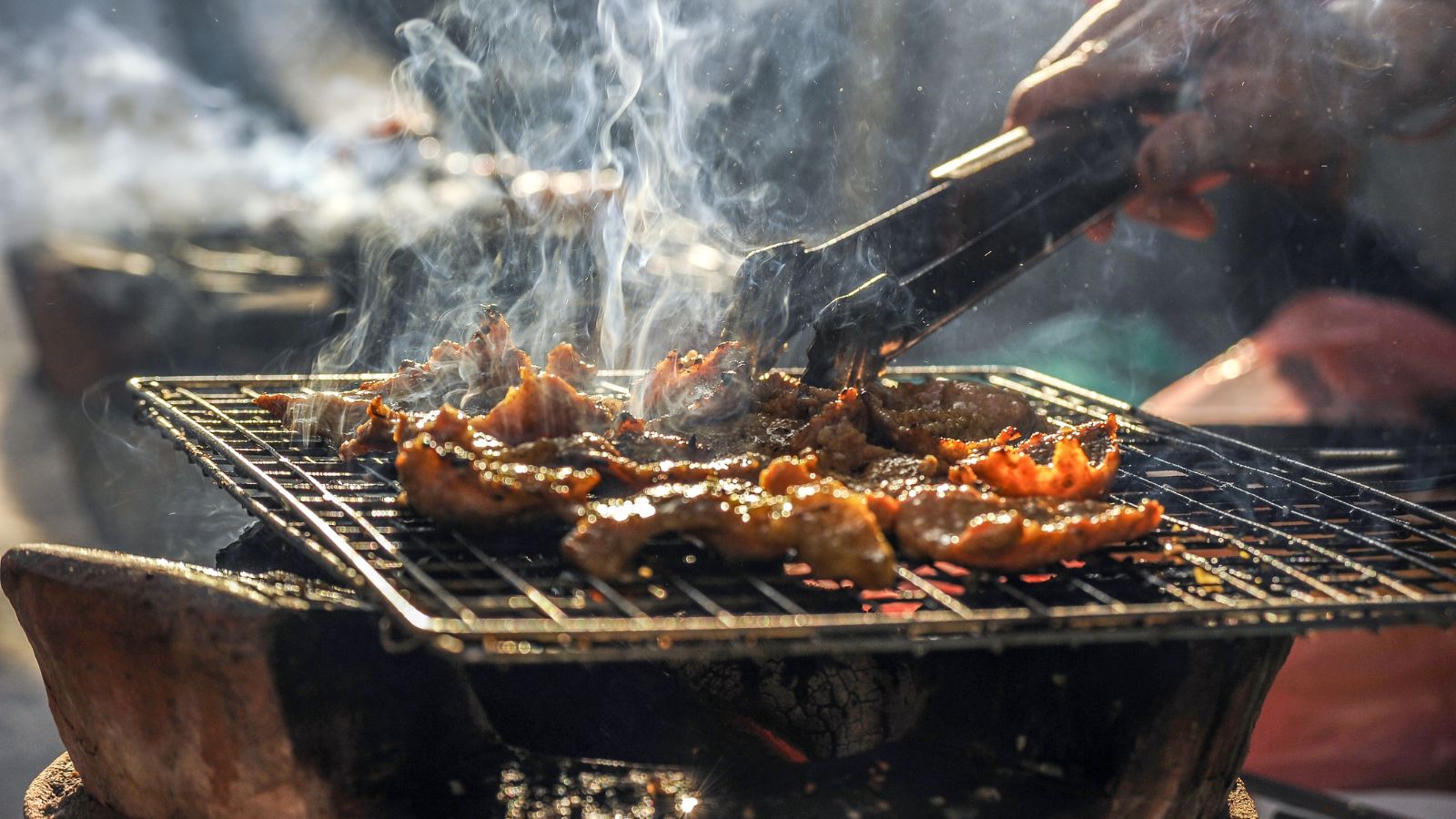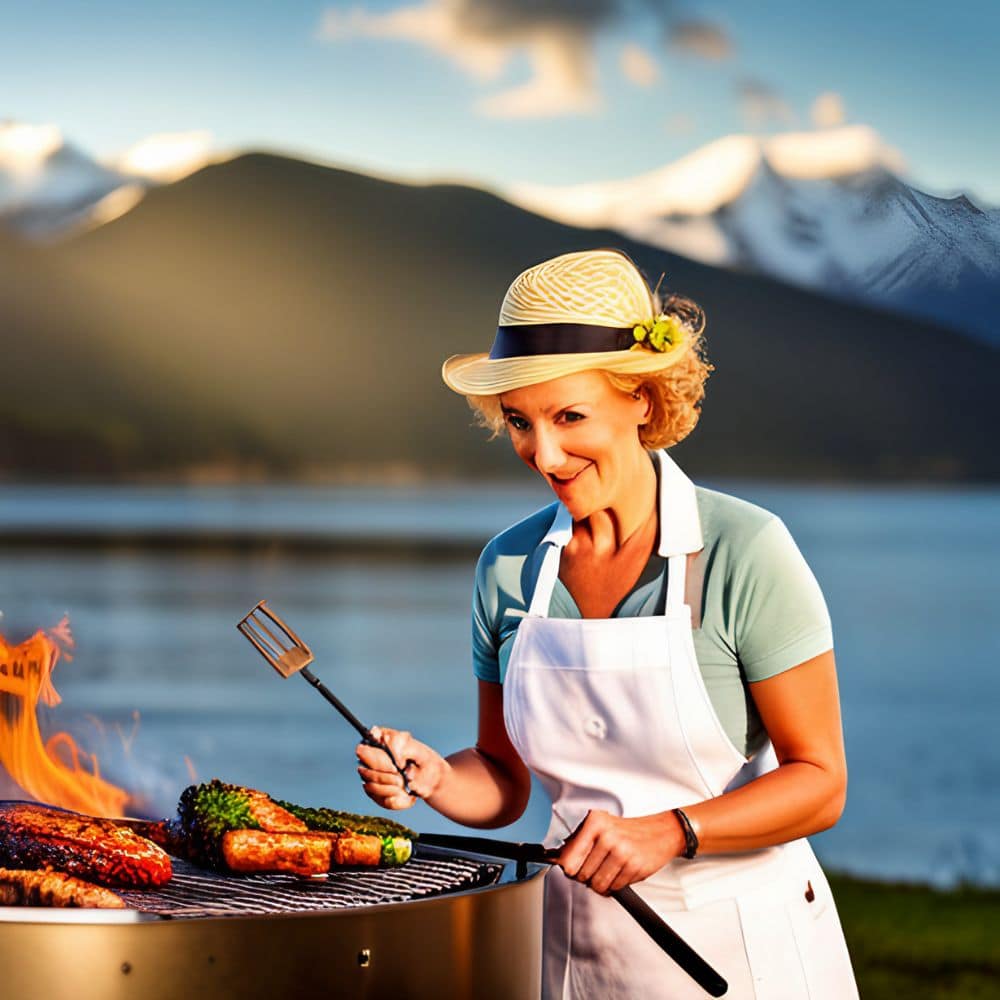Grilling is an art, and finding the perfect grill to suit your needs is key to becoming a grill master. There are several types of grills available on the market, each with its own unique features and characteristics. Some of the most popular types include charcoal grills, gas grills, and electric grills. Each type has its own pros and cons, making it essential to consider your specific requirements and preferences before making a decision.
Charcoal grills are well-loved by purists for the rich, smoky flavor they impart to the food, while gas grills are praised for their convenience, efficiency, and ease of use. Electric grills are popular for those with limited outdoor space and offer a quick and clean grilling experience. Other options include portable grills, ceramic grills, pellet grills, and hybrid grills, which combine the functionality and features of different grills.
Key Takeaways on Types of Grills
- Different grill types cater to specific needs and preferences, such as convenience, flavor, or space limitations.
- Charcoal, gas, and electric grills are the most commonly used, each with distinct advantages and disadvantages.
- Portable grills, ceramic grills, pellet grills, and hybrid grills offer unique features and experiences for grilling enthusiasts.
Charcoal Grills

Charcoal grills are a popular choice among outdoor cooking enthusiasts due to the distinct smoky flavor they impart to the food. The most common types of charcoal grills include kettle grills, barrel grills, and ceramic grills. These charcoal grills operate by burning charcoal, providing a heat source for grilling, barbecuing, and smoking.
Kettle Grills are known for their compact size and affordability. They feature a bowl-shaped bottom chamber that holds charcoal and a matching dome-shaped lid. The cooking process can be adjusted by raising or lowering the grates while opening and closing the lid controls heat and ventilation.
Barrel Grills are larger than kettle grills and are designed for grilling larger quantities of food. They have extended cooking surfaces, making them ideal for hosting backyard parties and gatherings. They typically feature a hinged lid and adjustable vents, providing greater control over the cooking temperature.
Ceramic Grills are pricier but offer superior heat retention, allowing them to achieve a wide range of cooking temperatures. These grills are versatile and can be used for grilling, smoking, and even baking.
Pros of Charcoal Grills:
- They provide a rich, smoky flavor to the food.
- Typically, it is more affordable than other types of grills.
- Can reach high temperatures, ideal for searing or creating grill marks.
Cons of Charcoal Grills:
- It takes longer to heat up and requires more time to cook.
- Charcoal can be messy and requires cleaning after each use.
- Temperature control is more challenging in comparison to gas grills.
In summary, charcoal grills offer a unique and authentic grilling experience. Choosing the right type of charcoal grill depends on your budget, desired cooking style, and grill size. While they may require more effort and attention, the delicious smoky flavor achieved by cooking over charcoal makes it a preferred choice for many outdoor cooking enthusiasts.
Gas Grills
Propane Grills

Propane grills are a popular choice for many grilling enthusiasts, as they provide a portable and convenient option for cooking outdoors. These grills run on propane, which is a byproduct of natural gas processing and oil refining. Propane has a low boiling point, making it an efficient fuel for grilling and powering other portable machines and vehicles, such as forklifts.
Pros:
- Quick start and heat up
- Easy to operate
- Portable and convenient
- Clean burning with less ash and residue
Cons:
- Requires propane tank refilling or exchange
- Less environmentally friendly compared to natural gas
- May not provide authentic smoky flavor
Natural Gas Grills
Natural gas grills offer a more permanent solution for outdoor cooking, as they require a direct connection to a home’s natural gas line. These grills have gained popularity for their efficiency and environmentally friendly qualities.
Pros:
- Economical, as natural gas is often cheaper than propane
- No need to refill or exchange tanks
- Environmentally friendly, producing fewer greenhouse gas emissions compared to propane
- Suited for permanent installation at home
Cons:
- Limited portability, as they require connection to a gas line
- Installation may require professional help and additional costs
- It might not provide an authentic smoky flavor
Both propane and natural gas grills provide fast heating and offer an easy-to-use operation. They are an excellent option for those who want a clean, convenient, and efficient cooking experience.
Each type of grill has its own advantages and disadvantages, and the choice largely depends on individual preferences. Whether it’s the portability and convenience of propane grills or the economical and eco-friendly aspects of natural gas grills, both options can help create a memorable outdoor cooking experience.
Electric Grills
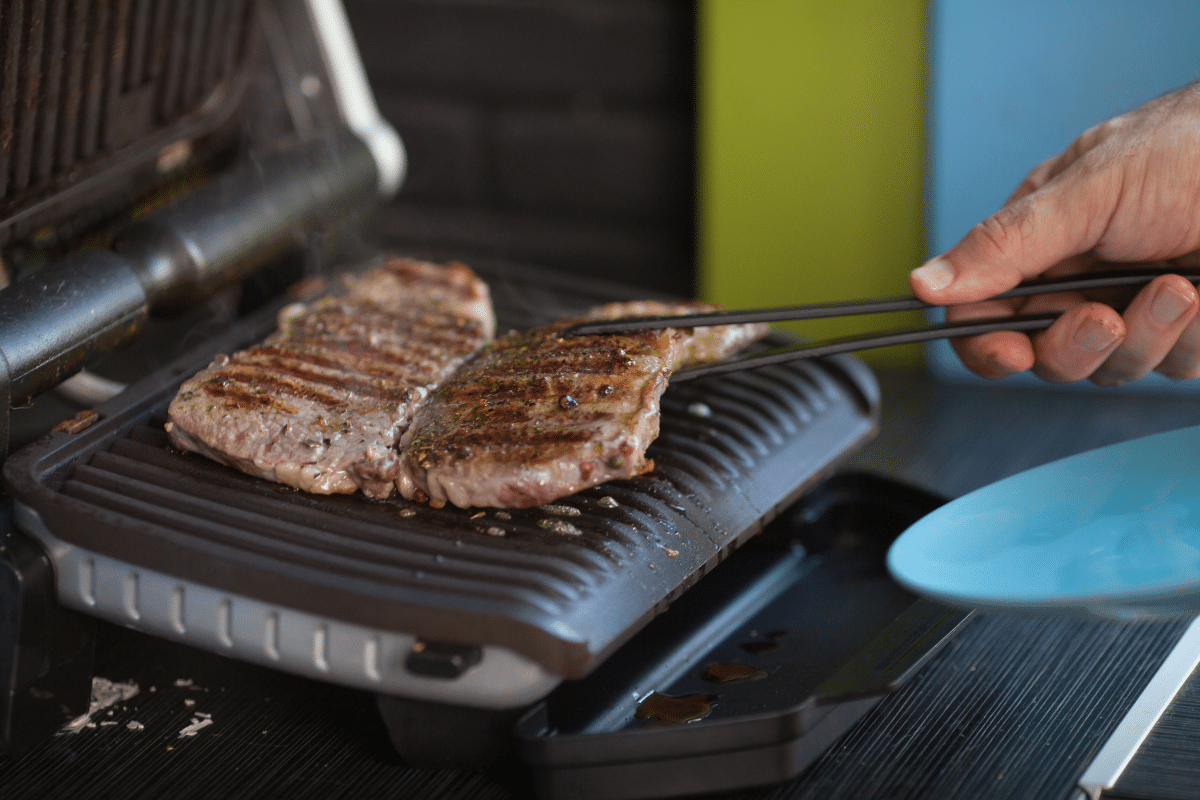
Electric grills have become increasingly popular for their convenient and user-friendly features. These grills are powered by electricity, eliminating the need for charcoal or gas as a fuel source.
Pros of Electric Grills
One major advantage of electric grills is their ease of use. They heat up quickly and offer precise temperature control, making it simple to cook a variety of foods. Additionally, electric grills are easy to clean, as many have non-stick surfaces or removable parts. They produce less smoke than their charcoal or gas counterparts, making them ideal for indoor or outdoor use, particularly in areas with stringent fire regulations.
Electric grills are also energy efficient, using far less energy than traditional grills. This leads to reduced energy bills and a smaller carbon footprint. Moreover, they are often more affordable, with a wide range of options to fit any budget. Some of the top electric grills on the market include the Power XL Smokeless Grill, the Char-Broil Patio Bistro Electric Grill, and the Hamilton Beach Electric Indoor Searing Grill.
Cons of Electric Grills
Despite their numerous benefits, electric grills have a few drawbacks. One significant limitation is their reliance on a power source. They need to be near an electrical outlet, which can be restrictive when grilling outdoors or during power outages.
Some people also find that electric grills don’t provide the same smoky flavor achieved with charcoal or gas grills. Furthermore, they may not heat as evenly as other types of grills, leading to inconsistent cooking results. Another disadvantage is that electric grills generally have less cooking space and lower maximum temperatures, which can limit users to smaller meals or slower cooking times.
In conclusion, electric grills are a practical and efficient option for casual grilling enthusiasts or those with limited outdoor space. Pros, such as easy cleanup, precise temperature control, and affordability, make them appealing to many. However, their cons, like reliance on a power source and potential limitations in cooking space, should be considered when deciding if they are the right fit for you.
Portable Grills

Portable grills are an excellent option for those who love grilling but have limited outdoor space or want to take their grilling on the go. These grills come in a variety of styles and fuel options, including charcoal, gas, and electric. This section will discuss two popular types of portable grills: tabletop grills and tailgate grills.
Tabletop Grills

Tabletop grills are compact and designed to fit on a table or other flat surfaces. They are lightweight and easy to transport, making them ideal for picnics, camping, and small outdoor gatherings.
Pros:
- Compact and lightweight
- Easy to set up and use
- Ideal for small outdoor spaces
Cons:
- Limited cooking surface
- Might not generate enough heat for some foods
Some top-rated tabletop grills include the Weber Q 1400 electric grill and the Cuisinart CCG190 portable charcoal grill.
Tailgate Grills

Tailgate grills are designed explicitly for tailgating parties and can easily be transported in the back of a vehicle. These grills offer more cooking capacity and higher heat output than tabletop grills, making them better suited for cooking large quantities of food.
Pros:
- Larger cooking surface
- Higher heat output
- Ideal for tailgating and large gatherings
Cons:
- Bulkier and heavier than tabletop grills
- Can be more challenging to set up
Some highly recommended tailgate grills include the Masterbuilt Portable Charcoal Grill and the Weber Traveler Portable Gas Grill.
When selecting a portable grill, it’s important to consider your specific needs and the type of fuel you prefer. Both tabletop and tailgate grills offer unique advantages, so choose one that best fits your grilling preferences and lifestyle.
Ceramic Grills
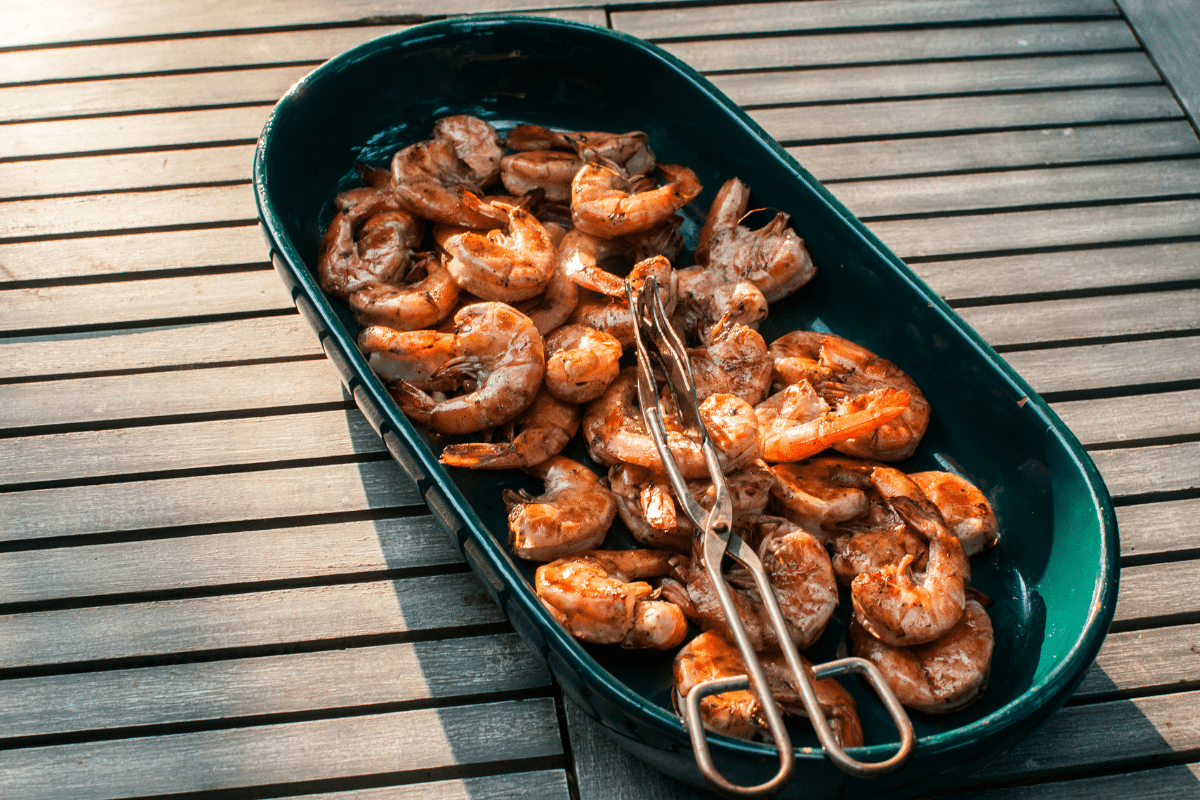
Ceramic grills, also known as kamado grills, are known for their versatility and excellent heat retention. Their unique design and construction provide users with various cooking options, such as grilling, smoking, and baking.
Pros of Ceramic Grills
One of the main advantages of ceramic grills is their durability. The ceramic material is built to withstand high heat and extreme temperature changes, making it suitable for heavy-duty cooking. Another benefit is their versatility, as they can be used for different cooking techniques like grilling, smoking, slow roasting, and even baking. Ceramic grills are also known for their fast warm-up times and ease of use, making them a popular choice among seasoned grillers. The dome shape and ceramic walls help retain heat, leading to efficient fuel usage and even cooking.
Cons of Ceramic Grills
Despite their advantages, ceramic grills do have some downsides. Their high price is a notable drawback, as they can be more expensive than other types of grills. Since ceramic grills rely on charcoal as their primary fuel source, they might not be the best choice for those who prefer the convenience of propane or natural gas. Due to their weight, ceramic grills are not highly portable, making them less suitable for camping trips or outdoor events away from home. Additionally, they can be more challenging to maintain and clean because of their design and the requirement to use natural lump charcoal instead of briquettes.
In conclusion, ceramic grills offer a unique cooking experience through their versatility and unique design. However, they might not be the best option for everyone, as their price and maintenance requirements could be limiting factors.
Pellet Grills
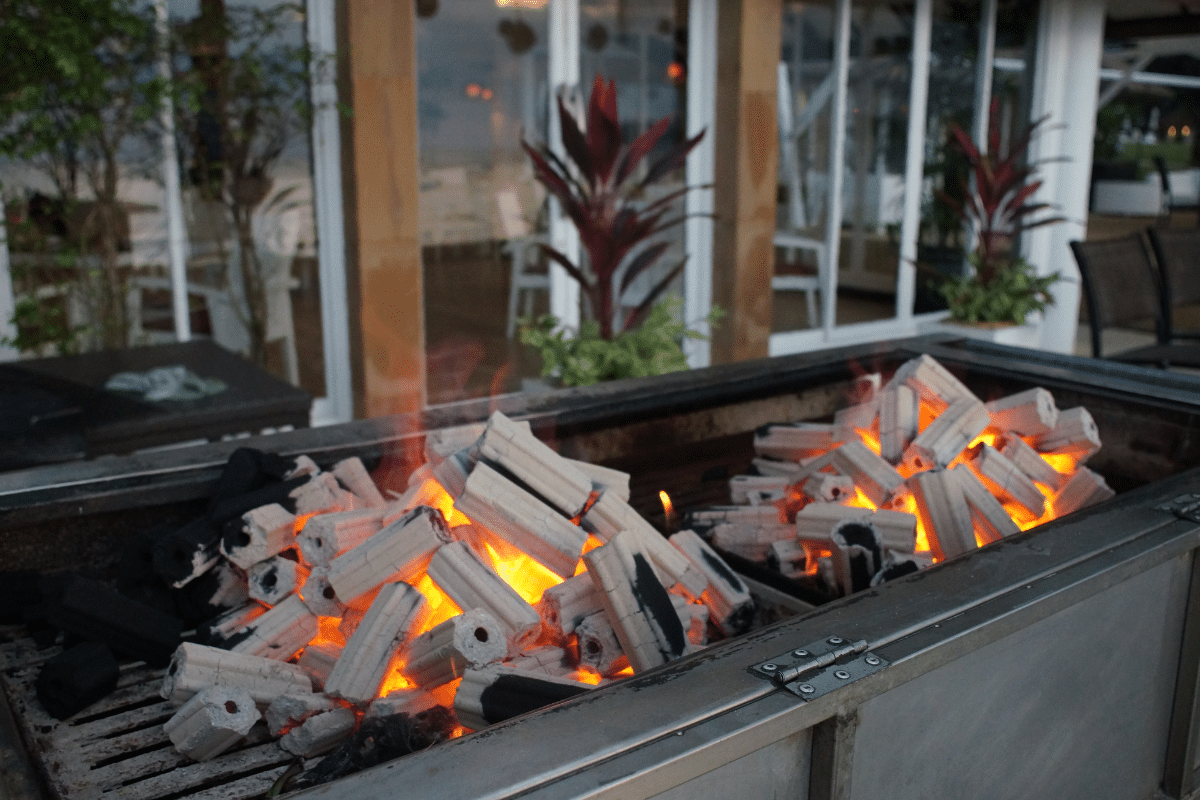
Pellet grills have been gaining popularity for their unique combination of convenience and flavor. They use wood pellets as fuel, which an auger feeds into the grill’s firepot to produce heat and wood-fired smoky flavors. Pellet grills often include digital temperature controls, providing a consistent cooking environment.
Pros of Pellet Grills:
- Flavor: Other grills can’t easily replicate the rich, smoky taste that wood pellets provide.
- Ease of use: The temperature control system makes it easy to maintain a consistent temperature, which is ideal for smoking and slow cooking.
- Versatility: Pellet grills can be used for grilling, smoking, baking, and even roasting food.
Cons of Pellet Grills:
- Cost: They tend to be more expensive than other grill types, both in terms of upfront costs and the ongoing cost of purchasing wood pellets.
- Dependence on electricity: As pellet grills rely on electric components, they need access to electricity. This may not be ideal for on-the-go or off-the-grid grilling.
- Less heat for searing: While pellet grills are versatile, they may not provide the high heat needed for effective searing and quick cooking, as with gas or charcoal grills.
Popular pellet grill models include the Yoder Smokers YS640 Pellet Grill, the Traeger Pro Series 575 Pellet Grill, and the Recteq RT-700 Wood Pellet Grill. Each offers different features and capacities, catering to a range of needs and preferences.
Hybrid Grills
Hybrid grills have become increasingly popular for their versatility and convenience. They offer a great combination of different fuel types, which can provide the best of both worlds for grilling.
One prominent type of hybrid grill is the Gas2Coal grill. These grills provide the option to use either gas or charcoal as fuel, allowing users to enjoy the quick heating and temperature control of a gas grill along with the rich, smoky flavor that charcoal grilling provides.
Pros:
- Versatile with multiple fuel options
- Quick heating and precise temperature control from gas grilling
- Rich, smoky flavor coming from charcoal grilling
- Convenience of switching between fuel types
Cons:
- Can be more expensive than single-fuel-type grills
- Requires storage and handling of different fuel types
- Slightly steeper learning curve to master both types of grilling techniques
Another popular option in the hybrid grill market is the Ensemble Grill and Muscle Grill, which feature a multi-fuel system. These grills boast stainless steel construction and large cooking spaces, making them ideal for cooking various meals on one grill. An additional advantage is the LED lighting, which allows for better visibility when grilling in the evening or at night.
Pros:
- Stainless steel construction provides durability and easy cleaning
- Large cooking spaces for handling different meals simultaneously
- LED lighting for improved visibility during nighttime grilling
- Innovative features such as multi-fuel system
Cons:
- Pricier than other grills on the market
- Requires knowledge and skills to fully utilize all of the features
When choosing a hybrid grill, considerations include the type of grate. Porcelain-coated grates are non-stick, making them easy to clean, but they can chip over time. In comparison, stainless steel grates are long-lasting but can be prone to sticking, making cleaning a bit more challenging.
In conclusion, hybrid grills’ popularity lies in their versatility and the ability to combine the benefits of different grilling styles. By considering the pros and cons of each type and the specific features they offer, consumers can make an informed decision when purchasing a hybrid grill that suits their needs.
Frequently Asked Questions
What is the best type of grill to buy?
The best type of grill to buy depends on your personal preferences, budget, and cooking style. Each type of grill has its pros and cons. Gas grills offer convenience and fast heating, while charcoal grills provide a smoky flavor but require more patience. Electric grills are easy to use and suitable for indoor use, whereas pellet grills provide wood-fired taste and temperature control. Ultimately, it is essential to consider what matters most to you in a grill.
What are the main differences between gas and electric grills?
The main differences between gas and electric grills are fuel source, heat control, and cooking location. Gas grills use propane or natural gas as fuel, whereas electric grills use electricity.
Gas grills tend to heat up faster and provide better heat control, while electric grills are more environmentally friendly and can be used indoors. Each grill type has advantages and disadvantages depending on your cooking preferences and available space.
What are the pros and cons of propane and pellet grills?
Propane grills are popular for their convenience and ease of use. They heat up quickly, provide precise temperature control, and are easy to clean. However, they can be expensive to fuel and do not impart the smoky flavor that many grill enthusiasts crave.
Pellet grills, on the other hand, use wood pellets for fuel, providing a wood-fired taste and excellent temperature control. They can be more difficult to maintain and operate than propane grills and may require a learning curve for some users.
What makes kamado grills unique?
Kamado grills, often made of ceramic or other insulated materials, are unique due to their egg-shaped design and versatility. They can be used as a smoker, grill, or even an outdoor oven.
Kamado grills provide excellent heat retention, allowing for high-temperature cooking and efficient use of charcoal. They are known for producing flavorful and juicy results, but they can be quite expensive and may have a steeper learning curve than other grills.
How do different grill tops compare?
Grill tops vary in terms of materials and design, which can impact cooking results and maintenance. Common materials for grill tops include cast iron, porcelain-enameled cast iron, stainless steel, and coated steel.
Cast iron and porcelain-enameled cast iron provide excellent heat retention and even cooking but require more maintenance to prevent rust. Stainless steel is more resistant to rust and requires less maintenance, but it may not provide as even a heat distribution as cast iron. Coated steel is a budget-friendly option, but it may not last as long or perform as well as other materials.
Which type of grill is best for outdoor cooking?
The best type of grill for outdoor cooking largely depends on your preferences and intended use. If you prioritize high heat and smoky flavor, a charcoal grill or kamado grill may be best. For convenience and fast cooking, gas grills are a great option.
Pellet grills provide the versatility of temperature control and wood-fired taste, making them ideal for outdoor cooking enthusiasts. Ultimately, it is important to consider factors such as cooking preferences, available space, and budget to determine the best grill for your outdoor cooking needs.
